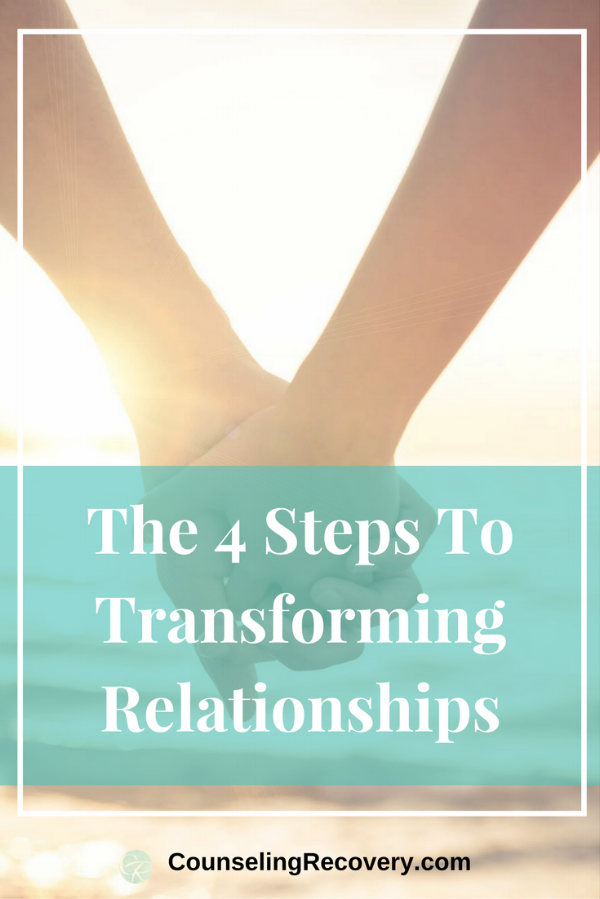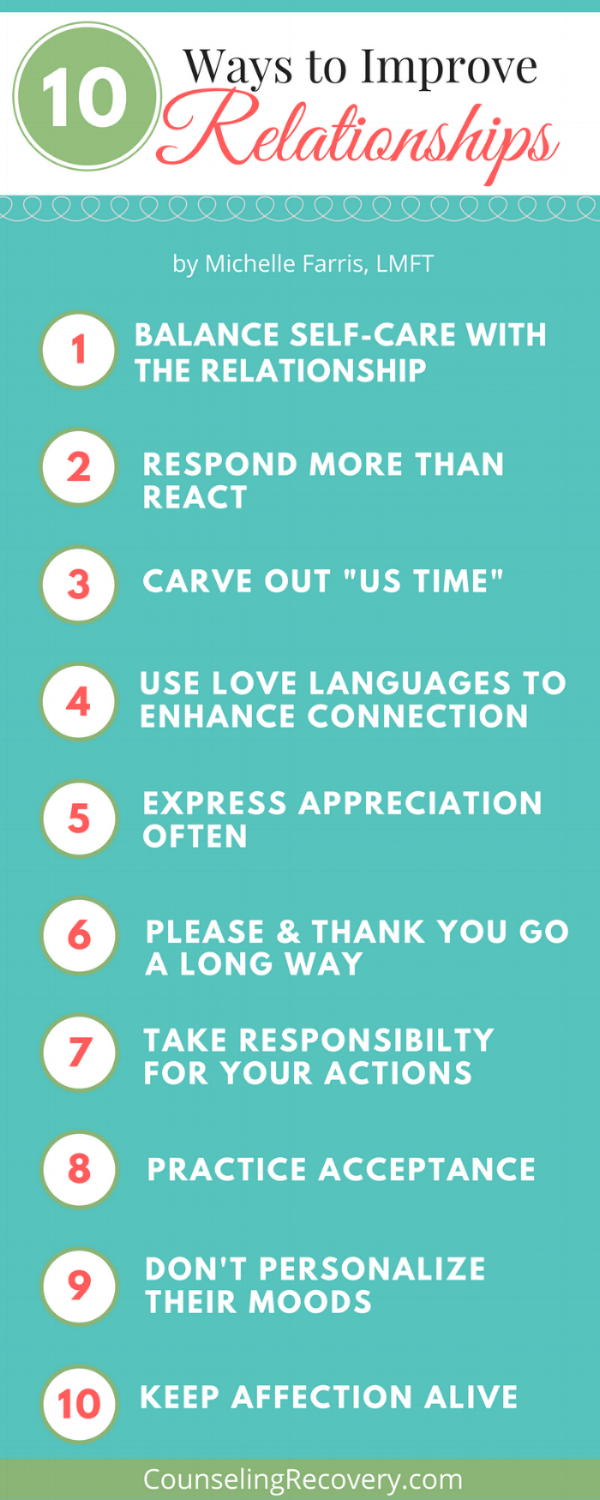4 Steps To Healing Relationships
Do you want healthier relationships but you're not sure where to start?
Healthy relationships are much easier when you have the right tools. This article shows you how to make major shifts in your relationships - starting with you. :)
1. It Starts with You
If you want your relationships to change, it has to start with you. Expecting others to change first is a common mistake. Even when the other person has no interest in changing, you have more power than you think.
One person can set the tone by making small but steady changes.
For instance, manners are usually the first to go when a relationship starts to fail. Put back the "please" and "thank you" like when you were dating.
Notice their efforts - no matter how small. Feeling appreciated makes your partner feel valued and that makes a huge difference.
Remember if you want better behavior, you have to model it. What you say and do sets the tone. Sometimes, they follow. Plus, it's great example for your kids.
You Might Be Thinking...
"What about my partner, I'm not the problem." The ability to look at your behavior is the first step. When one person changes, the relationship changes. For example, stop blaming and you’ll avoid that criticism/defensive cycle. Instead, use I messages.
Change "Why can't you just do what I asked?" to "I feel frustrated when you picked up the kids late."
2. Increasing Self-awareness
The second step to improving relationships is increasing awareness around your relationship behavior. Here's a mini-check list to get your started.
In your relationships...
Can you talk to your partner (mostly) without having a harsh or critical tone?
Are you able to repair hurts in the moment or soon after?
Are old resentments getting in the way of feeling close again?
Do you avoid asking for what you want directly?
Is you or your partner's anger creating problems?
Relationship Tips
Getting clear on what the problem is opens the door for positive change. If communication is a challenge check out my article Can We Talk Without Losing it?
BTW - If you think the other person is the problem that might actually be the problem! Focusing only on what the other person does continues the blame game. This has to stop before any significant improvement can be made.
Once you figure out what isn't working, you're ready to move on to the next step.
3. The Power of Accountability
Taking responsibility separates those who struggle in relationships from those who thrive. Looking at yourself contributes to the solution. It starts with a simple apology or "You may be right." That can be a powerful bridge towards healing.
Next time you say something you regret go back and acknowledge it. This way you can stop the hurt from damaging the relationship. Your partner feels heard and you start to feel close again. Admitting your mistakes builds intimacy.
4. Taking Action
Next, decide what changes you want to make and pick one to focus on first. When we know ourselves, we can heal.
Here are some questions to get you started.
Do you give in too easily then feel resentful? If so, start saying no thank you!
Are you in an abusive or one-sided relationship? Do you need help to end it?
Do you blame your partner for your unhappiness? Take responsibility for your own joy!
Are you expecting your partner to fulfill most of your needs? Get your needs met elsewhere too!
Quick Tips to Improve Relationships
Change your communication from You statements to I statements
Don't ever neglect yourself for the relationship
Start setting boundaries and don’t be afraid to say no
Learn to use time-outs to avoid blow ups
Acknowledge your part in any argument
Have a support system to avoid dependency issues
Get professional help if you can't leave the relationship
Relationships change when you do something different even if you are the only one practicing it. When you get healthier, the decision to leave or stay becomes more clear.
These tools help you ask for what you need and be more realistic in your expectations.


